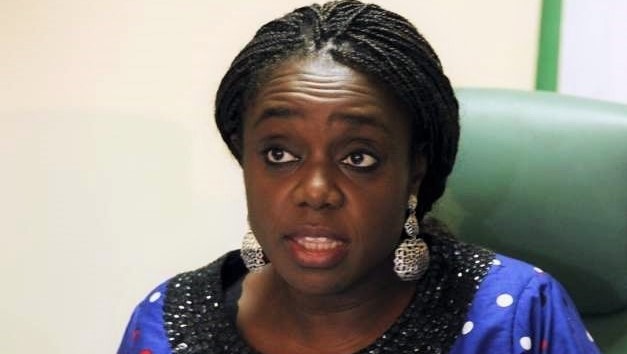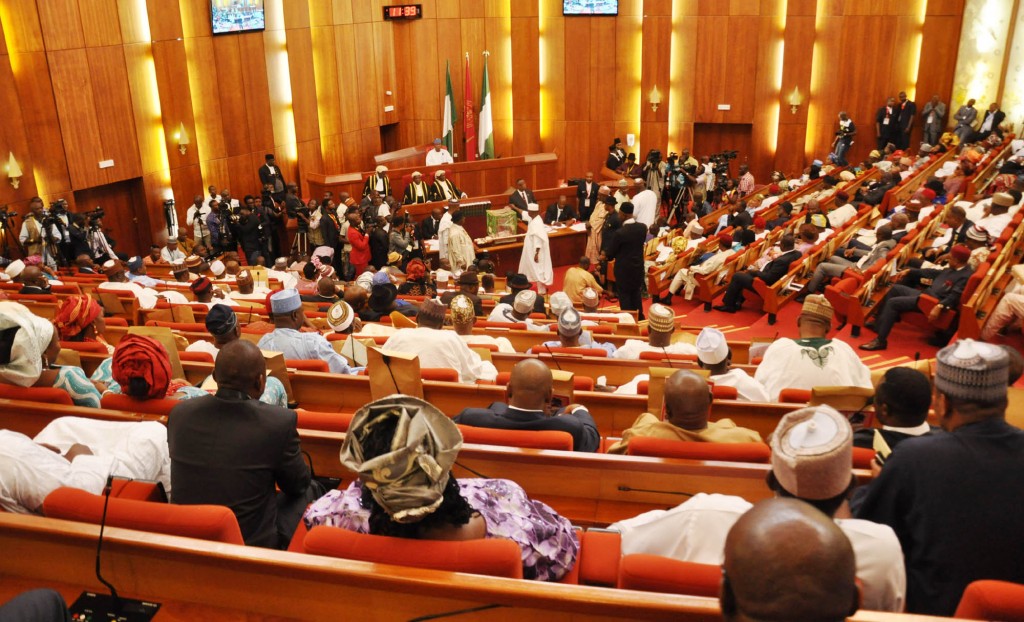With the spectre of recession hanging over the nation, the Senate is deeply worried. Taking into cognisance the shrinking economy underscored by rising inflation, unemployment, poverty, dwindling oil revenue and other symptoms of recession, the upper legislative chamber yesterday summoned the Finance Minister, Mrs., and the Central Bank of Nigeria (CBN) Governor, Mr. Godwin Emefiele.
The senators want the duo to brief the upper legislative chamber on the monetary and fiscal policies adopted to salvage the worrisome economic situation.
Adopting without debate, a motion sponsored by the Chairman of the Senate Committee on Gas, Bassey Albert Akpan (PDP, Akwa Ibom), the chamber expressed concern about revelations from several Ministries, Departments and Agencies (MDAs) that have roles to play in the economy regarding the gloomy picture of the nation’s economic condition.
Already, experts, including the National Coordinator of the National Poverty Eradication Programme (NAPEP) under President Olusegun Obasanjo administration, Dr. Magnus Kpakol, have said that it is now clear that the country’s recessionary mode has become inevitable in the second quarter of the year ending June.
They explained that the grim expectation was being accentuated by the recent scarcity of refined petroleum products; exchange rate crisis over imported goods; the high cost of electricity; increased transportation costs; reduction in food production; high cost of inputs; and low industrial output, which have taken the greater part of the period.
Also, the delay in approving the budget, a document that is supposed to act as a catalyst for growth, kept the economy inactive, leading to the disengagement of workers and the non-expanding business cycle.
The Senate particularly noted that the National Bureau of Statistics (NBS) had last week released the nation’s economic scorecard for the first quarter of the year 2016 for Gross Domestic Product (GDP), inflation and unemployment, stressing that the report depicted that the nation’s economy was plunged into recession with a decline of 0.36 per cent year-on-year in real terms which was a drastic drop from 2.11 per cent in Q4 2015 in GDP.
Bassey said: “From the report, unemployment rate rose to 12.1 per cent in Q1, 2016 from 10.4 per cent in Q4, 2015. Underemployment also increased to 19.1 per cent from 18.7 per cent in the same period while the rate of inflation rose from 9.6 per cent in January, 2016 to 13.8 per cent in April, 2016 with the attendant increase in prices of basic food commodities and services in the country.
“The declining Gross Domestic Product (GDP) and unemployment besides the current high inflation rate clearly shows that the economic policies are not achieving desired impact and requires an urgent review to avoid further plunge in our economy.”
He further described as worrisome the continued complacency of the current state of the economy, saying, if allowed unchecked would set the tone for a full-blown economic recession by the end of June, 2016 as already confirmed by the CBN in its Monetary Policy Committee (MPC) meeting of Tuesday.

While seconding the motion, Deputy Minority Chief Whip, Senator Biodun Olujimi, (PDP, Ekiti South) noted that the government does not have any viable economic policies that would help salvage the economic recession in the country with the devaluation of the naira, stressing that the two people invited to brief the Senate should come up with palliatives to cushion the hardships.
Olujimi said: “In seconding the motion, Mr. President, it is very clear that there is no visible economic policy in Nigeria, everything has gone down as it is with the devaluation of the naira.
“The two people that have been invited, the Minister of Finance and the Governor of Central Bank of Nigeria, will come with an economic blueprint and ways of applying palliatives to this our economy.”
Speaking on the development with The Guardian, Kpakol, an economist said that when an economy records a negative growth twice consecutively, it is declared recessed and with the same economic challenges still taking a better part of the period, it appears the country will repeat the negative growth in second quarter.
“But the important thing is not the recession. It is the impact on the people and fragility of the economy, which can predispose it to other external shocks. The reserves are down; unemployment and inflation are getting out of control. These are the concerns.
“A recessed economy can come. It is like someone who fell into a pit and surely, the person would come out, but coming out easily will depend on the depth of the pit and the condition of the person. We must fight now to keep the recession level shallow,” he said.
But as a way forward, he called on government to get its acts right with regard to the brewing Niger Delta crisis and fiscal complement of the monetary policy, through the budget, while the legislature should be more active than they are now.
An economist at the Pan Atlantic University, Dr. Austin Nweze, said Nigeria has long been in recession, “but only managing the information about the faltering economy and now that it can no longer be contained, we are raising the alarm.
“Government’s mix of wrong activities and outright inactivity has brought down the economy. The policies on inflation targeting and foreign exchange have all collapsed,” he said.
According to him, the fiscal side of economic management has not been forthcoming and where there is the need for a time lag and adequate direction, government has resorted to the use of fiat.
He therefore called on the CBN to reduce interest rate to stimulate economic agents as a way to fight the recession, especially since the observed inflation is not demand-driven, but cost-triggered.
The Chief Executive Officer of Time Economics, Dr. Ogho Okiti, however, said while he never expected major changes in the exchange rate, the imminent introduction of a flexible exchange rate policy, would in the coming days, help mitigate some of the structural imbalances prevalent in the market.
“This provides the strongest signal yet that the bank will develop some flexible measures for the exchange rate market,” he said, adding that it would further ensure the free flow of forex to the productive sectors.
The Lagos Chamber of Commerce and Industry (LCCI), while commending the CBN’s flexible exchange rate adoption, said the policy choice offers some benefits to the economy, including the improvement of the efficiency of foreign exchange allocation in the economy, reduction in the distortions that currently characterise the forex market and bring the economy closer to equilibrium and improvement of liquidity in the foreign exchange market.
The chamber urged the CBN to revisit the list of items that have been placed on the exclusion list of the forex market, adding that many critical inputs of manufacturing companies are on the list and it has crippled the operations of such companies, creating significant job and output losses.
In a statement made available by its Director-General, Muda Yusuf, the chamber added that the policy would further reduce the current trade arrears, the arrears of remittances which have accumulated for the past 18 months, the uncertainty which investors have been grappling with over the last one year and boost investors’ confidence and attract greater forex inflows to the economy.


